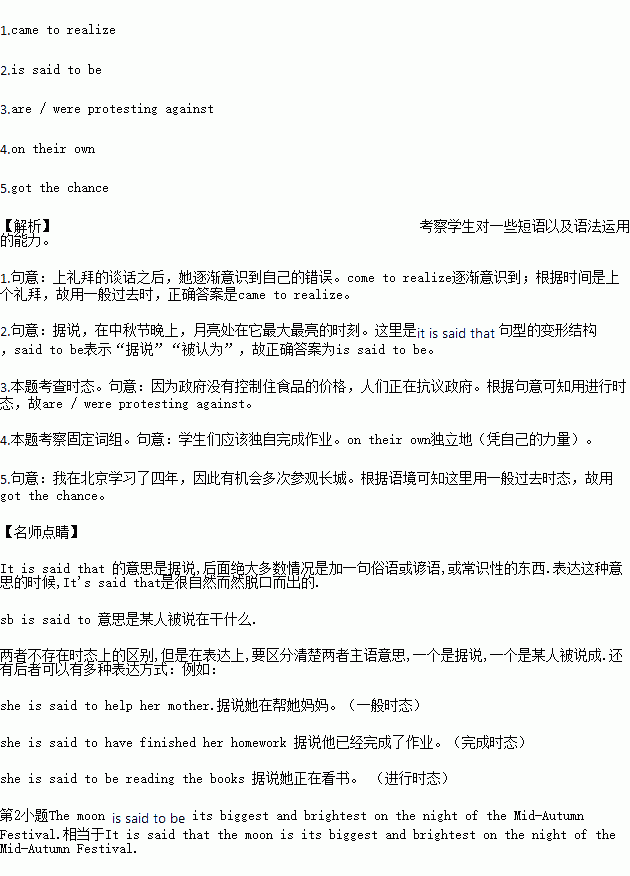题目内容
1.1.She _________________________(逐渐意识到) her mistake after the talk last week.(come)
2.The moon (据说是) its biggest and brightest on the night of the Mid-Autumn Festival. (say)
3.The people (正在抗议) the government for their not controlling the price of food. (against)
4.The students are supposed to finish the homework (独自). (own)
5.I studied in Beijing for four years so I ____________ (有机会) to visit the Great Wall many times. (get)
练习册系列答案
相关题目

